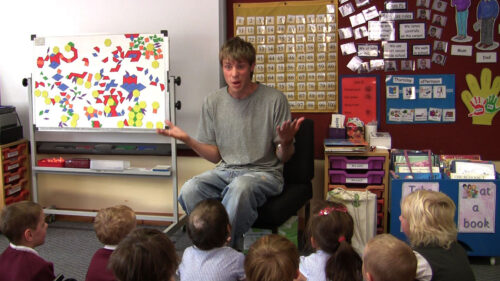Suitable for both KS1 and KS2, this workshop utilises oral narratives to overcome common obstacles preventing children’s acquisition of key literacy skills, raising the average level and equipping your class to succeed in literacy.

Number of children: 10 – 35
Suitable for: KS1 – KS2
Time needed: Min 1 hour (can be extended for more in depth work; the more time allocated, the more benefit for the pupils)
Space needed: Classroom
Equipment needed: Whiteboards, whiteboard markers, pencils, paper
Content: Do your children have trouble producing elaborated writing? Do you want to broaden the scope of your students’ reading comfort zone without putting undue pressure on them? Do you believe pupils work better when inspired by stories and storytelling? Meeting Ofsted’s new literacy requirements is a real challenge. This workshop gives students a chance to rekindle the passions that make literacy learning fun! Once a child gets hooked on creative narrative play, speaking & listening and reading & writing skills are developed as a by-product to their games.
I work by giving students the space to tap into their own potential as story-makers and storytellers. The human capacity for narrative is hard wired, and absolutely everyone is able to be enthralled by stories and create their own. Storytelling is a foolproof way to lead even the most reluctant pupils into a more dynamic engagement with literacy, and inspire their work for a long time to come.
Benefits:
> To acquire a wide vocabulary, an understanding of grammar and knowledge of the linguistic conventions of spoken language.
> To appreciate our rich and varied literary heritage, including the (often neglected) oral tradition of folk tales and urban legends.
> To empower pupils to elaborate and explain clearly their understanding and ideas.
> To help children see speaking and listening as an art.
> To appreciate different types of speech (registers) and their various uses.
> To improvise, devise and script drama for one another.
> To rehearse, refine, share and respond thoughtfully to dramatic performances.
